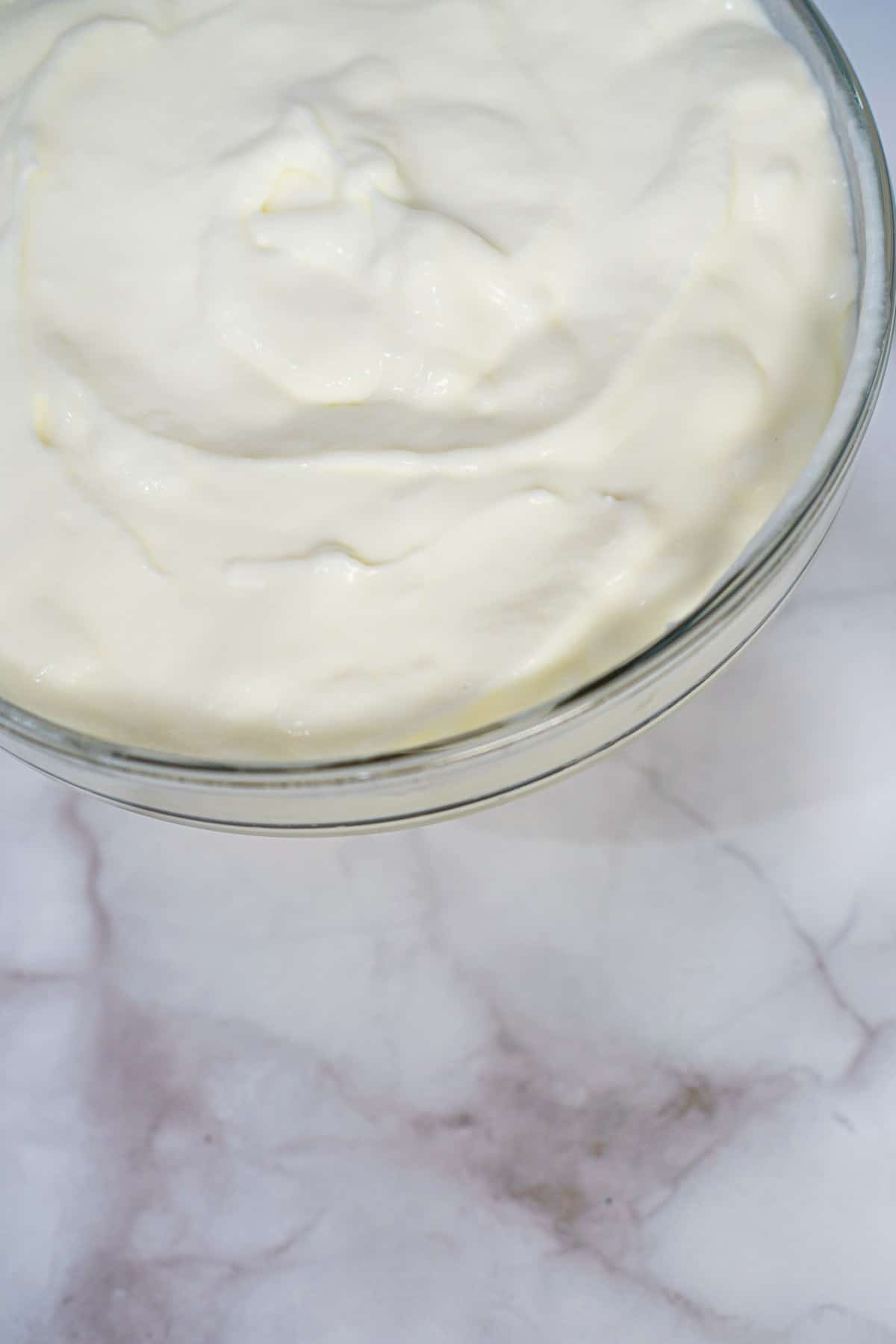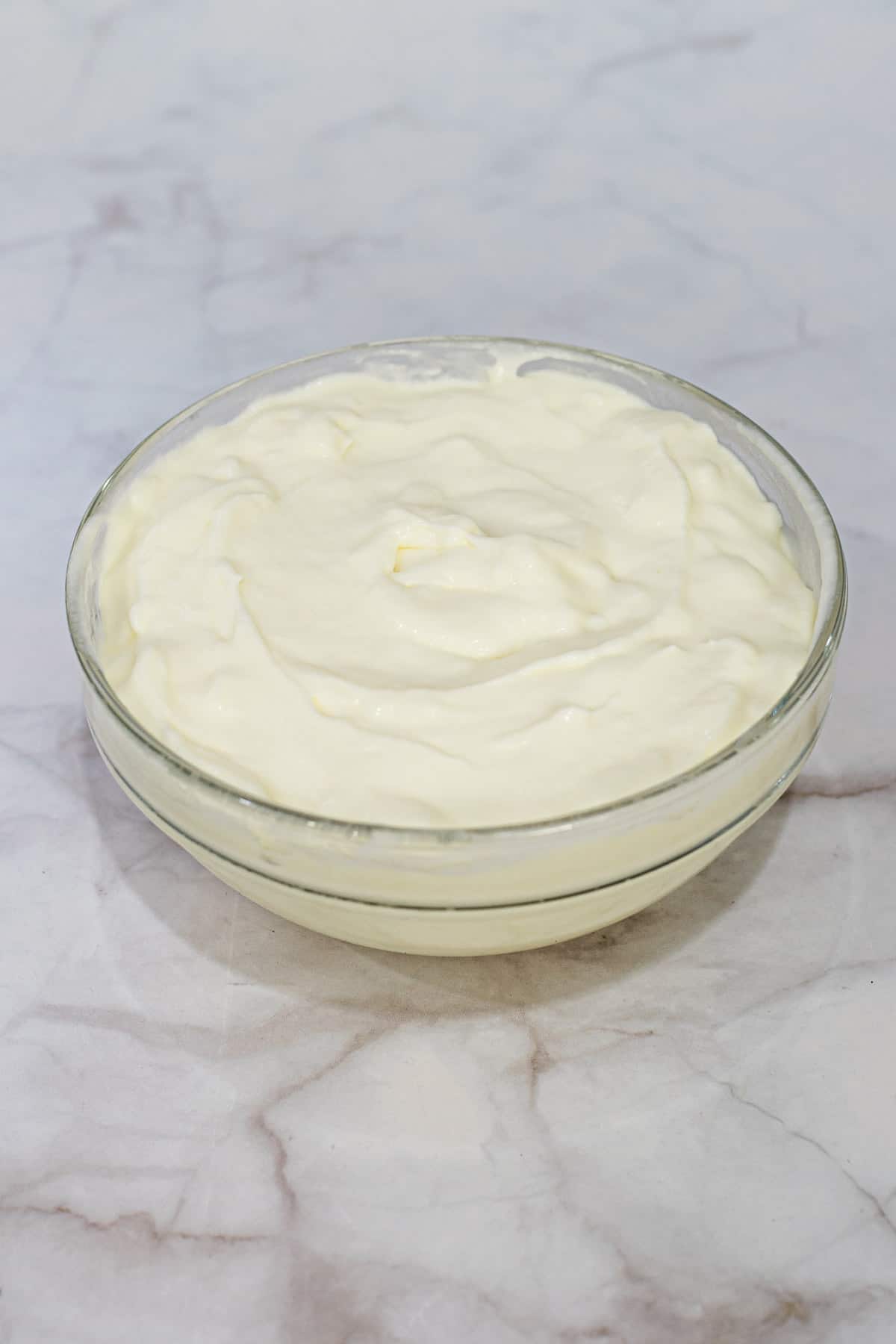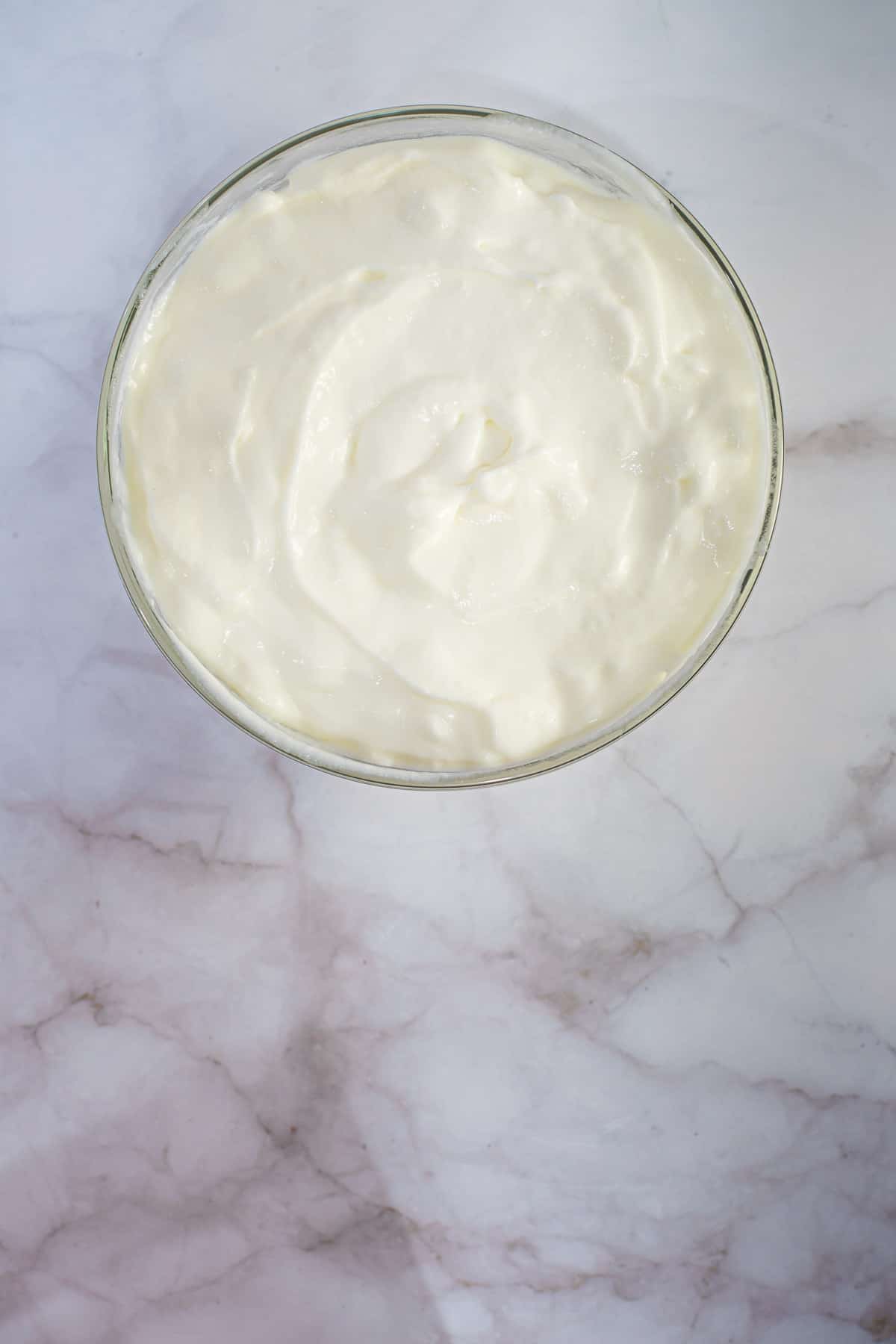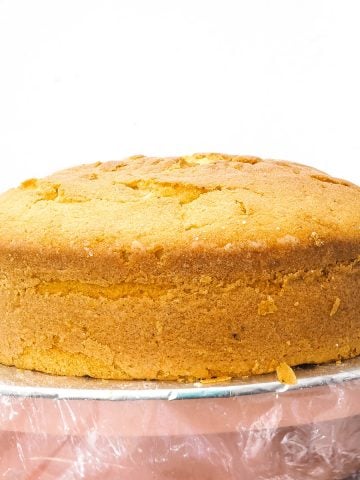Can you freeze mascarpone cheese? This is a question I often get and the good news is, yes, it can be frozen provided it is done properly.
You will find in this post, the ins and outs of freezing mascarpone cheese for future use, including how to do it properly and how to use it once it's thawed. Follow these tips and you will never have to waste any leftover mascarpone cheese anymore.

Mascarpone cheese is widely used to make many delicious desserts, the most common ones being tiramisu, cheesecakes and mousses.
As with cream cheese, mascarpone is a perishable dairy product, it can be challenging to store and preserve it for prolonged periods even in the refrigerator.
While freezing it may not be the first thought that comes to mind, the ability to freeze this cheese is indeed a game-changer and a great way to keeping this delicious cheese longer.
Jump to:
Looking for more tips and techniques? Check out these other posts on how to avoid cakes from remaining wet in the middle, how to use silicone molds for cake decorating, how to make puffed fondant hearts without cutters or molds, how to line a cake tin and how to level and layer cakes like a pro.
❓What is Mascarpone Cheese?
Mascarpone cheese is a rich and creamy Italian cheese of dairy origin (one of the many dairy products from cow's milk). It is said to have originated in Italy and is categorized as a soft cheese. It has a smooth, creamy texture and mild, slightly sweet flavor. Unlike some other soft cheeses like cream cheese and goat cheese, mascarpone cheese is not on the tangy side of taste.
Traditionally, mascarpone cheese is made from just two main ingredients - whole cream and citric acid or tartaric acid. To make the cheese, the cream is heated and then mixed with the acid, which thickens and curdles the mixture. It is then left to cool and settle. The curdled mixture is then strained with a cheesecloth to separate and curd and the whey. The curds are then further pressed to remove any excess moisture, resulting in a rich, creamy cheese.
Commercially produced mascarpone cheese may also include stabilizers or thickeners, but traditional mascarpone cheese is made with just cream and acid. You can also make homemade mascarpone cheese at home with just heavy cream and lemon juice.
Given that this cheese is made entirely from fresh cream, it has a fat content of around 70%. The high-fat content of this cheese is a distinct feature that gives it a buttery texture and makes it an excellent choice for making both sweet and savory dishes.

How to freeze?
Many people wonder if mascarpone cheese can be frozen to extend its shelf life. While the answer is technically a yes, there are pros and cons and limitations.
Freezing is a great way to preserve mascarpone cheese for later use, especially if you have leftover cheese that you don't want to go to waste. However, it is important to note that freezing can change the texture and flavor of mascarpone cheese, so the frozen cheese has its limitations and would not be suitable for all recipes.
These are some of the basic steps (right way) and best practices you need to consider for the freezing process:
- To begin with, you would not want to freeze expired cheese, so the first thing is to make sure the expiration date has not passed. It is always better to freeze the cheese while it is still fresh to preserve the freshness. It the cheese is still in its original packaging and the packaging is airtight, you can freezer it directly that way.
- Transfer the cheese to an airtight container or a freezer-safe plastic bag. Remove as much air as possible before sealing the container or bag. You can use a vacuum sealer to do this. If the cheese is left exposed to air in the freezer on not kept in an air-tight container, it can incur freezer burn and this can affect the flavor and texture of the cheese. Also, it the cheese is left open, it will absorb the odors and flavors of other food in the freezer which can be unpleasant one it is thawed. Such exposure could also lead to food safety issues (food poisoning).
- If you have large amounts of cheese to freeze, it is a good idea to freeze it in smaller portions. That way, you can thaw it faster. Also, you only need to thaw the portion you need when you need it (when you only need to use a small amount), and let the remaining in the freezer for later use. To portion the cheese, simply divide and pack it in smaller individual airtight containers.
- Label the container or bag with the storage date. This is also an important step because frozen cheese also has its expiry. Writing down the date will help you easily identify the expiry date of the cheese.
How long can it be frozen?
Mascarpone cheese can last up to three months in the freezer if stored properly. However, the texture and flavor of the cheese may change after freezing, so it's best to use it as soon as possible after thawing.
How to thaw (Thawing Process)
The best way to thaw this cheese is to remove it from the freezer and let it thaw slowly in the refrigerator section. Here’s how you can do it:
- Remove the frozen mascarpone cheese from the freezer and place it in the refrigerator. Make sure to let the cheese remain in an airtight container or freezer bag. Never it is open as that could lead to the cheese absorbing odors or flavors from other food in your refrigerator.
- Allow the cheese to thaw in the refrigerator overnight or for at least 6-8 hours. Avoid thawing the cheese at room temperature, as the long exposure to warm temperature can cause it to spoil or develop harmful bacteria.
- Once the cheese has thawed completely, you may notice that it has grainy texture. Give it a good vigorous stir or whisk (can do it with an electric mixer) to help smooth out any lumps or graininess that may have occurred during freezing.
- Use the thawed cheese as soon as possible (within one or two days of removing from the freezer). Do note that the cheese may not have the same texture or flavor as fresh cheese. If you're using the cheese in a recipe, it's best to incorporate it into the recipe while it's still slightly chilled, as this will help it to hold its shape and texture better. Once the cheese is thawed, use it as soon as possible. Do not refreeze the defrosted cheese, as this can cause further changes in texture and flavor.








Leave a Reply